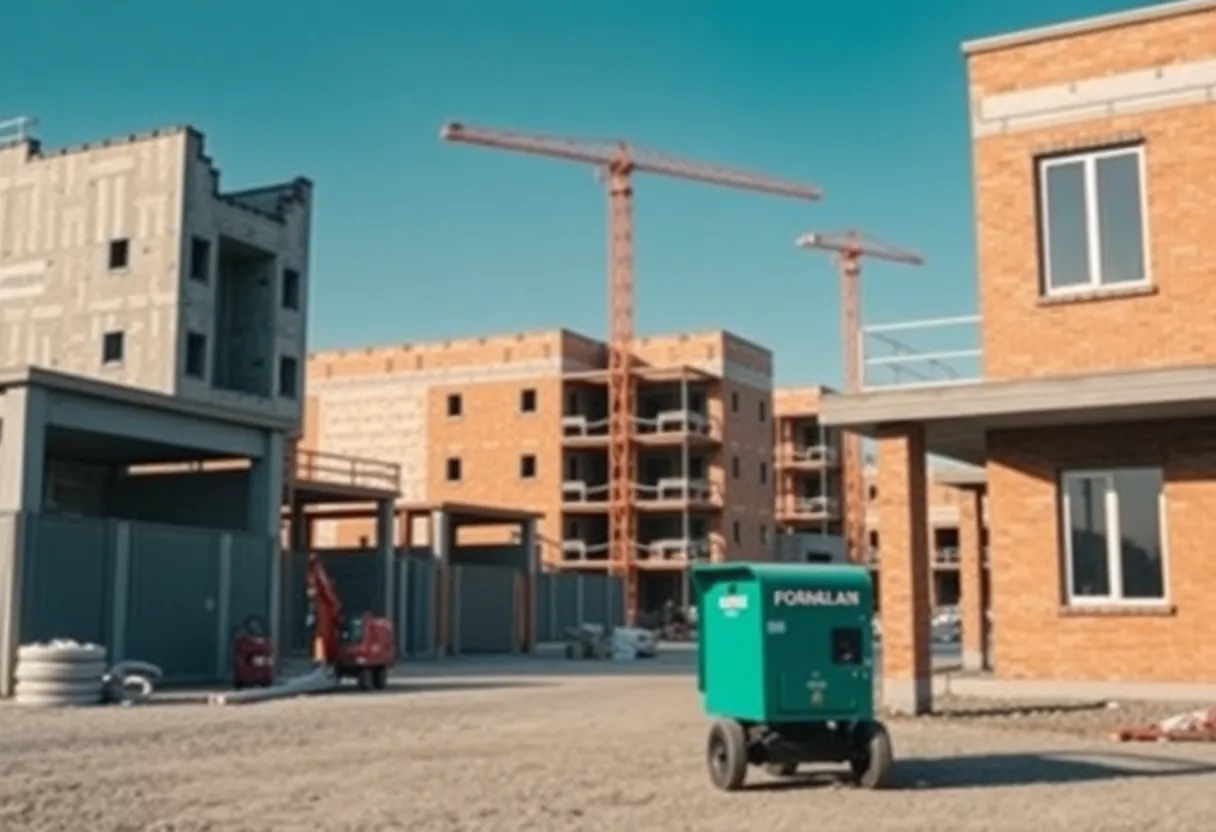News Summary
The One Big Beautiful Bill Act (OBBBA) unveils significant tax opportunities for contractors, including changes to income recognition, deductions, and depreciation rules. This legislation particularly benefits the construction industry, offering expanded exemptions for residential contracts, reinstating R&E expenditure deductions, and introducing new amortization rules. Furthermore, the act introduces a 100% bonus depreciation for select properties, alongside other tax benefits that promote immediate cash flow for businesses. Careful planning and professional guidance are advised to fully leverage these new provisions.
The One Big Beautiful Bill Act (OBBBA) Introduces Key Tax Planning Opportunities for Contractors and Businesses
The recently enacted One Big Beautiful Bill Act (OBBBA) offers an array of significant tax planning opportunities for contractors and businesses. This new act brings notable changes that affect how income is recognized, as well as the rules surrounding deductions and depreciation. The implications of this bill are expected to be particularly advantageous for contractors operating in the construction sector and businesses engaged in innovative projects.
Income Recognition and Deductions for Home Builders
A major update under the OBBBA is the expansion of the percentage-of-completion method (PCM) exception for home construction contracts, which will now include residential construction contracts. Previously, home builders had the flexibility to use accounting methods such as the completed contract method or accrual method, and residential contracts could apply two different approaches: 70% required PCM while 30% could use any permissible method. This change applies to contracts entered into after the enactment date of 2026 for calendar year taxpayers, creating a new playing field for builders.
Research and Experimental Expenditures
For businesses heavily invested in research and innovation, the OBBBA reinstates the ability to expense any domestic research and experimental (R&E) expenditures for tax years beginning after December 31, 2024. Small businesses with average annual gross receipts of less than $31 million in 2025 can also amend their returns to deduct R&E expenditures from prior years. Additionally, the unamortized Section 174 expenditures from 2022 to 2024 can be deducted in 2025 or spread across 2025 and 2026, significantly benefiting firms in the design-build space.
Depreciation and Interest Deductions
The OBBBA introduces changes to the treatment of depreciation. It restores the ability to add back depreciation, amortization, and depletion when calculating adjusted taxable income, effectively increasing the cap on deductible business interest for tax years starting after December 31, 2024. Furthermore, property acquired after January 19, 2025, will qualify for 100% bonus depreciation, although existing phase-out rules will still apply to earlier acquisitions.
Introducing Overtime Pay Deductions
In a bid to further aid businesses, the OBBBA provides a new deduction for overtime pay. Eligible individuals can enjoy an above-the-line deduction of up to $12,500, or $25,000 for married couples filing jointly, with a phase-out starting at $150,000 for individuals and $300,000 for couples. This deduction, effective retroactively to 2025, promotes fair compensation practices while simultaneously providing tax relief.
Further Tax Adjustments and Benefits
One noteworthy adjustment is the repeal of Section 179D deductions for energy-efficient commercial buildings starting after June 30, 2026. However, the OBBBA maintains the ability for businesses to fully deduct qualifying equipment and property costs in the year they are purchased and placed in service. This move is aimed at enhancing cash flow and reducing financial constraints for many entities.
The act also makes important changes to the tax treatment of global intangible low-taxed income (GILTI) and foreign-derived intangible income (FDII), as well as modifications to the tax rates and calculations for these categories. Startups stand to benefit from expanded qualifying income under Section 1202 for sold small business stock, enabling more growth opportunities.
Long-Term Implications and Strategic Planning
The comprehensive changes introduced by the OBBBA underscore the importance of detailed tax planning. With provisions reinstated, amended, or repealed, business owners and contractors need to carefully evaluate their tax strategies to leverage the benefits and navigate the complexities posed by the new regulations. Consulting with a professional CPA can provide the necessary insights into the different accounting options and help determine if IRS permission is required for any changes.
As businesses adapt to these significant tax reforms, understanding the intricacies of the OBBBA will be crucial for optimizing their financial strategies moving forward.
Deeper Dive: News & Info About This Topic
Additional Resources
- CLA Connect: What Contractors Need to Know About the One Big Beautiful Bill Act
- RSM: 5 Ways the One Big Beautiful Bill Act Could Help Your Company Save on Taxes
- Vinson & Elkins: One Big Beautiful Bill Act – Key Tax Impacts for Businesses
- Grant Thornton: New Law Brings in Significant Tax Changes
- Wikipedia: Tax Law
- Google Search: One Big Beautiful Bill Act
- Google Scholar: One Big Beautiful Bill Act
- Encyclopedia Britannica: One Big Beautiful Bill Act
- Google News: One Big Beautiful Bill Act
Author: Construction NY News
The NEW YORK STAFF WRITER represents the experienced team at constructionnynews.com, your go-to source for actionable local news and information in New York and beyond. Specializing in "news you can use," we cover essential topics like product reviews for personal and business needs, local business directories, politics, real estate trends, neighborhood insights, and state news affecting the area—with deep expertise drawn from years of dedicated reporting and strong community input, including local press releases and business updates. We deliver top reporting on high-value events such as the New York Build Expo, infrastructure breakthroughs, and cutting-edge construction technology showcases. Our coverage extends to key organizations like the Associated General Contractors of New York State and the Building Trades Employers' Association, plus leading businesses in construction and real estate that power the local economy such as Turner Construction Company and CMiC Global. As part of the broader network, including constructioncanews.com, constructiontxnews.com, and constructionflnews.com, we provide comprehensive, credible insights into the dynamic construction landscape across multiple states.





